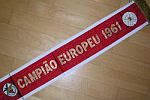Hugo Miguel Pereira de Almeida nasceu a dia 23 de Maio 1984 na Figueira da Foz. Deu os seus primeiros passos no clube distrital Buarcos antes de fazer o seguinte em mudar-se para o Naval 1° de Maio. Concluiu a sua formação como jovem ja no FC Porto durante o seu último ano como Junior em 2001/02.
Chamado para a equipa principal, teve dificuldades em se impor devido á forte concorrência com jogadores como Derlei, Benny Mc Carthy ou mais tarde Lisandro Lopez, todos eles a atuar na mesma posição, que era ponta de lança. Mesmo com os seus pontos fortes, que era o jogo aereo e um remate poderoso, não foi suficiente para convencer os treinadores. Isso resultou em vários empréstimos ao longo de quatro anos. Na sua última estação, Werder Bremen, o clube alemão accionou a opção de compra e assim ficou na cidade nortenha, que seria uma das suas estações mais felizes. Depois da partida de Mirolsav Klose para Munique, a escolha caiu nele como primeira opção e ele retribuiu com golos. Na sua primeira época como jogador do Bremen, foram 16 em total o que ajudou alcançar o segundo lugar. Um ano mais tarde ajudou ganhar a Taça.
Transferiu-se para o Besiktas no inverno de 2010/11 onde permaneceu até 2014, juntando mais um Taça nacional ao curriculo. A seguir apenas teve curtas passagens por vários clubes como Hannover, AEK Atenas ou Hajduk, antes de terminar a carreira como jogador em 2020 na Académica de Coimbra.
Repesentou Portugal em todos escalões, desde os Sub16. Pela Seleção A alinhou em 57 partídas, marcando 19 golos, e foi convocado para os Mundiais 2010 e 2014, tal como para o Europeu em 2012.
Esta camisola foi utlizada por ele num amigável contra a Itália em 2008, onde foi suplente utilizado.
Hugo Miguel Pereira de Almeida was born on 24th of May 1984 in the town of Figueira da Foz. After kicking the ball first at his local club Buarcos, he moved to Naval 1° de Maio, where he underwent most of his education. In his last year as a junior, he moved to FC Porto and became professional right after in 2002. As a striker he had to fight against strong competitiors like Derlei, Benny Mc Carthy and later Lisandro Lopez, what led into several loans along the years. In 2007 he joined Werder Bremen who had paid the clause to sign him. And as if the stars aligned, he replaced leaving Miroslav Klose as first choice. He repaid with many goals, 16 in that season, helping the team reach second spot in Germany. One year later he even helped to win the Cup.
In winter 2010/11 he left Bremen for Besiktas, where he played until 2014, again with a median of 1 goal every two matches. He helped the team win the Turkish Cup in 2011.
After that his career became more incosistent with only short spells at 7 clubs in five years. In 2020 he ended his career at Académico Coimbra.
For Portugal he played in every level, starting by U16, and was called 57 times to play for Portugals National Team, scoring 19 goals. He was called to represent Portugal in two WC, 2010 and 2014, and for the 2012 European Championship.
The shirt above was worn by hin during a friendly vs Italy in 2008, where he was a used sub.
Jogo/ match: 06.02.2008 Italia vs Portugal 3:1
Fornecedor/ outfitter: Nike
M
T
G
Y



















